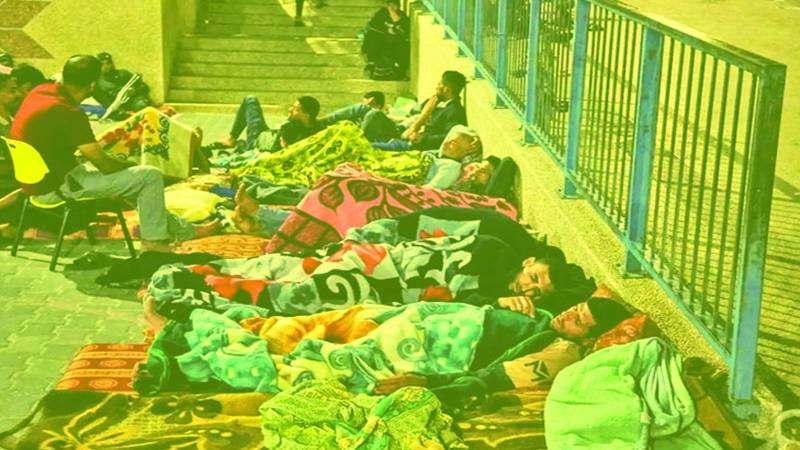
Arab neighbors have responded bluntly to calls for a humanitarian corridor or an escape route for Palestinians from Gaza as the confrontation between Israel and the Palestinian Islamist group Hamas has intensified.
Jordan, which borders the West Bank and is controlled by Israel, and Egypt, the only Arab nation with a border with Gaza, have both issued statements against the eviction of Palestinians from their homes.
It underscores long-standing Arab concerns that Israel's most recent conflict with Hamas in Gaza would lead to a fresh wave of long-term evictions from territory where Palestinians hope to establish a future state.
On Thursday, Abdel Fattah al-Sisi, the president of Egypt, declared that this was the root of all evil and the cause of all Arabs. "It is important that the Palestinian people remain steadfast and present on their land."
The concept of leaving or being driven out of territory where they wish to establish a state brings to mind the "Nakba," or "catastrophe," when many Palestinians were forced to flee their homes during the 1948 conflict that preceded the establishment of Israel.
Approximately 700,000 Palestinians—roughly half the Arab population of what was then British-ruled Palestine—flew or were ejected from their homes. Many of them spilled into adjacent Arab states, where they or many of their descendants now reside. Many people still occupy refugee camps.
Israel disputes the claim that it expelled Palestinians by pointing out that it was invaded by five Arab governments the day after it was founded.
Thousands of Gaza's 2.3 million residents have fled their homes since Israel began its intense bombardment of the territory on October 7, following a devastating attack by Hamas militants. However, they are still residing inside Gaza, a tiny sliver of land wedged between Israel, Egypt, and the Mediterranean Sea.
More than 1 million Palestinians in Gaza City were given a 24-hour warning by the Israeli military to leave the area for their own safety, indicating that Israel may soon begin a ground assault.
In reaction, King Abdullah of Jordan warned: "against any attempt to forcibly displace Palestinians from all Palestinian territories or cause their internal displacement, calling for preventing a spillover of the crisis into neighboring countries and the exacerbation of the refugee issue."
Ahmed Aboul Gheit, the leader of the 22-member Arab League, pleaded with UN Secretary-General Antonio Guterres to denounce "this insane Israeli effort to transfer the population."
Stephane Dujarric, a spokesperson for the UN, stated: "Civilians need to be safeguarded. We do not want to witness a large-scale exodus from Gaza.”

